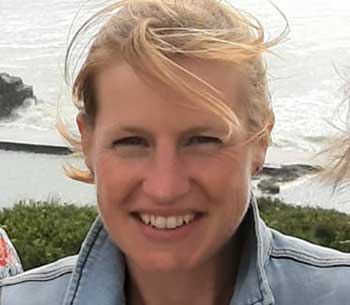We are working with farmers, landowners and communities to mitigate for climate change; improve water quality; increase tree and orchard planting and restore hedgerows. We are also providing support in the post-Brexit world and with the introduction of the new Environment Land Management Scheme (ELMS) agri-environment schemes.

A new vision for a new era
January 2023
Grants and Luckett Catchment Update
Grants Available to Support Nature
Sarah Richardson, the Tamara Scheme’s Land Management Officer has been busy the last couple of months with small grant applications. There is a small pot of funding that can be awarded for the delivery of:
Some of the projects we have supported so far include
These grants are aimed to help small projects which are ineligible for other grant schemes. If you think you have a project that we may be able to support, please get in touch with Sarah at sarah.richardson@cornwall.gov.uk for more information.
Working in Partnership to improve the Water Quality at Luckett Stream
Improving the water quality of our streams, rivers and tributaries is important for nature and wildlife and the Tamara Team are working with farmers, landowners and our partners including the Westcountry Rivers Trust, to improve the water quality at Luckett.
The Westcountry Rivers Trust have completed a 6-month water quality study measuring water quality parameters and invertebrate communities at 11 sites along the Luckett Stream between June and November 2022. It concluded that sites immediately below the Sewage Treatment Works along the main Luckett Stream suffer from the worst overall water quality whilst the Clitters and Trehill tributaries scored the best overall.
The report found that concentrations of various water quality parameters are not always affected by rainfall consistently. This suggests that water quality in the Luckett Stream and its tributaries is likely to be affected by a number of different sources including chronic point source pollution, such as from the Sewage Treatment Works or possible domestic septic tanks, as well as run-off from surrounding urban and agricultural land.
The report will help us to identify areas where intervention methods such as natural flood management, land management options and cultivation techniques, tree cover, riparian zones and buffer strips could have the most impact. We are looking forward to working with farmers, growers and landholders within the catchment to work towards implementing these interventions and improving the water quality.
August 2022
New Events, WEIF Projects and Working Groups
Water Sampling at Luckett Stream
As part of the Water Environment Investment Fund (WEIF) project, water sampling of the Luckett Stream has begun by Westcountry Rivers Trust, the 6 month initial programme is to ascertain baseline condition of the Luckett Stream. This is to enable us to identify the main pollutants in the watercourse, and how we can mitigate it by changes in land management techniques and interventions. The options for mitigation will be appraised and then be implemented working with farmers, landowners and stakeholders within the catchment.
Waste Acceptance Criteria Test quotes have been obtained and we hope to take samples soon, to investigate the content of the sediment found in the Luckett Stream and identify pollutants such as phosphate. This will enable us to quantify the improvements brought about by our interventions.
Tavy Working Group Formed
A Tavy Working Group has been formed to begin a WEIF project on the Lower Tavy. Partners include Westcountry Rivers Trust, Devon Wildlife Trust, Environment Agency, Tamar Valley AONB, and Tamara Landscape Partnership.
This will help us make informed decisions when considering interventions that will provide the best results in the Lower Tavy catchment, and draw on the partners experience in other catchments and our experience in the Luckett Stream, which is the first part of the WEIF project.
Supporting Farmers and Landowners with applications and grants
We’ve worked with 13 farmers and landowners to provide 1-2-1 advice, on Countryside Stewardship Scheme applications, current grant funding such as Capital Grants and emerging schemes including the Sustainable Farming Incentive and Local Nature Recovery. These schemes are part of the Agricultural Transition Plan and will replace the existing Basic Payment Scheme (BPS), which is being phased out. Identifying and securing sources of funding for farming and rural businesses to replace the income from BPS whilst providing environmental benefit both on farm and to the wider landscape will be essential.
Upcoming Farming Events
We have been planning some events with the Farm Wildlife Advisory Group South West (FWAG SW), with the first one planned this October and then in April next year. The first event will take place on the 12th October at Dupath Farm and will cover subjects such as rotational grazing and the benefits it brings, soil health and soil carbon. Keep an eye on the AONB events page for details.
July 2022
New Land Manager Joins the Tamara Team!

Working in partnership with Farming In Protected Landscapes (FIPL), colleagues at the AONB, we have been busy engaging with farmers and landowners. With the appointment of our new Tamara Landscape Partnership Land Manager, Sarah Richardson, over the coming months we will be focusing on identifying further sites for hedge planting and restoration and tree planting. Alongside this, working with our colleagues at the Environment Agency, Westcountry Rivers Trust, Devon Wildlife Trust and Dutchy College, we will continue the Luckett stream catchment improvement monitoring and action and get work on the Upper Tavey catchment underway.
© 2022 | Privacy Policy | Terms and Conditions